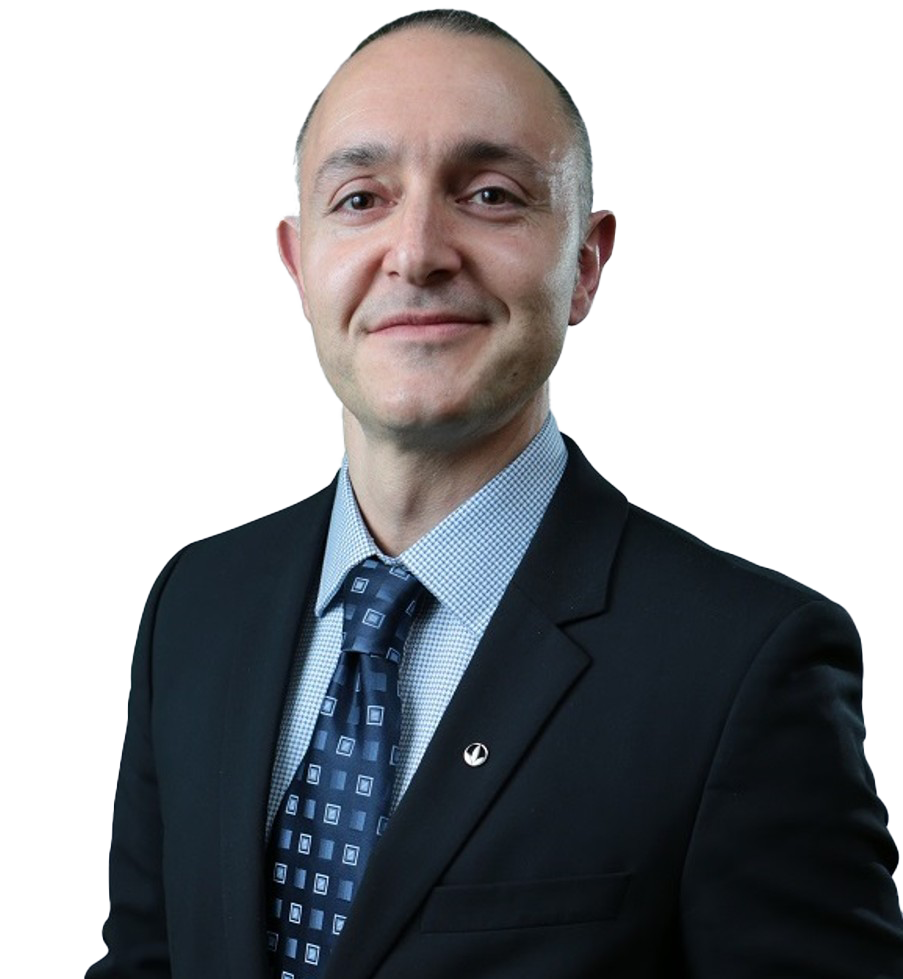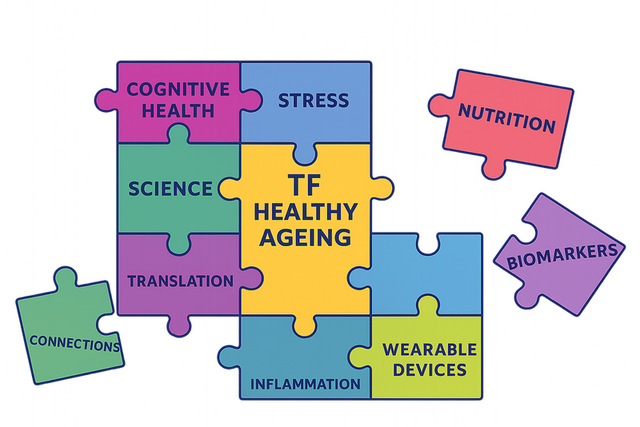A word with
Andrea Bertocco
Senior Principal Scientist at Herbalife and Chair of the ILSI Europe Healthy Ageing Task Force

Member of AgroFOOD Industry Hi Tech's Scientific Advisory Board
As a Senior Principal Scientist at Herbalife, Dr Bertocco is responsible for ensuring the safety and scientific integrity of products and product-related materials for the markets in Europe, Middle East & Africa (EMEA). In his role, Dr Bertocco focuses on scientific research and outreach to scientific institutions with the aim of creating strong partnerships with leaders in the field of nutrition and as well strengthen the claims around some of the products developed at Herbalife. Dr Bertocco’s current passion at Herbalife involves focusing on research projects in the field of alternative proteins, prebiotics and the full spectrum of botanical preparations.
Dr Bertocco obtained his first scientific qualification, a Laurea Degree in Organic Chemistry, at the University of Padua in Italy. After his degree in Padua, he worked with DSM Pharma Chemicals, in developing bioactive peptides based on c-alpha tetrasubstituted amino acids. He then moved to Edinburgh in Scotland to pursue a PhD in Organic Chemistry”
Dr Bertocco is a member of the ILSI Europe Healthy Ageing Task Force

What is the main objective of the ILSI Europe Healthy Ageing Task Force, and how does it contribute to scientific & industry advancement and public health ?
The objective of ILSI Europe Healthy Ageing Task Force is to understand what ageing means and how we can design a healthy pathway that spans across all age groups. Firstly, we set to understand the biomarkers that are involved in the ageing process and how they can change via different nutritional interventions. Secondly, we aim to link those biomarkers to published studies, and lastly, it is to delve into existing databases and biobanks to close that circle. The latter will hopefully allow us to complete a complex puzzle where there should be a better understanding of all changes that take place at various ages, allowing us to look at the whole picture chronologically. This is where we like to use the words “chronological versus biological ageing” and I do think it sounds not only fascinating, but it does describe really what we are trying to uncover here in this task force.
An assessment of this type provides a great snapshot for the scientific community, especially when we focus on exploring angles that are not yet considered. This work can be unique and challenging at the same time. From an industry standpoint, there will be not only the need to develop less invasive diagnostic tools that can be used to monitor age-related biomarkers, but also the opportunity to create tailored nutritional recommendations. Only in the last 15 years it was shown that adding the amino acid Leucine to a bolus of protein was responsible for kicking off muscle protein synthesis in the elderly; can we imagine how many other dietary recommendations could be made if we had a better understanding of ageing? Could we find the “new Leucine” for other mechanisms?

How would you describe the relevance of the ILSI Europe Healthy Ageing Task Force’s work for the food and health-related industries?
The work on healthy ageing initiated by the Task Force appeals to everyone involved in both health and nutrition, regardless of whether they belong to a scientific institution or a private entity, especially given the global shift toward older populations and the need to ensure that longer lives will also be healthier and independent. By focusing on biomarkers, nutritional interventions, and emerging technologies, we aim to better understand and support with nutrition and guidance the biological and functional changes that occur with age. This aligns with international priorities-like those outlined in the WHO’s Decade of Healthy Ageing- which emphasize not only adding years but improving the quality of life and reducing age-related health disparities through scientific, evidence-based approaches (1).
With ageing being a multifactorial process, how does the Task Force approach the integration of multidisciplinary research (e.g., microbiome, inflammation, cognitive health)?
This was one of the core elements the Ageing Task Force discussed at the very first meeting. We acknowledge the complexity of ageing as a multifactorial process, and the sheer volume of research data across different domains, such as the microbiome, inflammation, cognitive health, psychological state, stress levels, could easily turn this initiative into an open-ended project. Other task forces, within ILSI Europe, are focused specifically on some of these areas, so the key aspect of this task force is to integrate insights from multiple disciplines strategically. Currently, we aim to gather research across these diverse disciplines and examine them through the lens of nutrition. By placing all this knowledge under the nutritional perspective umbrella, we can identify where nutrition has the potential to play a meaningful, evidence-based role. In line with this approach, our first activity will be a comprehensive review of biomarkers, spanning various physiological and psychological domains, that can be influenced by nutritional interventions. This will help us establish a solid, cross-disciplinary foundation for future work.
How do you see the concepts of ‘healthy ageing’ and ‘healthy diet’ evolving in the next decade, especially in light of a growing ageing population and emerging technologies?
The perception of ageing has changed drastically. Ideas like “today’s forties being the new twenties” or “today’s sixties being the new forties” have influenced people’s mindset and sparked the desire for healthier nutrition. We also seem to lead busier lives; we work and exercise more at older ages: this forces us to reconsider some of the unhealthy choices and keep our body in check and balance. Finally, we all have understood quite well that what we put in our body has a severe impact on how we age. Now, a healthy diet is synonym for a healthier ageing process, but there is yet a lot of work that needs to be conducted at an educational level once science has been enriched around these aspects of (un)healthy ageing. I am also quite optimistic about the use of non-invasive tracking and diagnostic tools that help us monitor and understand our health. Wearables measuring steps, sleep, or body functions offer accessible ways to maintain balance and detect potential health issues, enabling targeted early interventions.
What are the upcoming activities of the Task Force?
One of the upcoming task force activities will be a narrative review focusing on nutritional modifiable biomarkers. This overview will provide guidance to researches when designing a study about which biomarker to select for with age population and which outcome. The need for this activity was identified during a multistakeholder workshop held in October 2021. The proceedings of this workshop are currently under review in a peer-reviewed journal. We are also excited to announce a new two-day workshop scheduled for November 24–25 2025, which will review available nutritional interventions in ageing, highlighting emerging opportunities and future directions. Finally, one of the future activities will be including the growing role of technology and diagnostic tools in healthy ageing.

References and notes
- World Health Organization. (2020). Decade of healthy ageing: baseline report. World Health Organization. https://iris.who.int/handle/10665/338677. License: CC BY-NC-SA 3.0 IGO 203 p. 203 p.